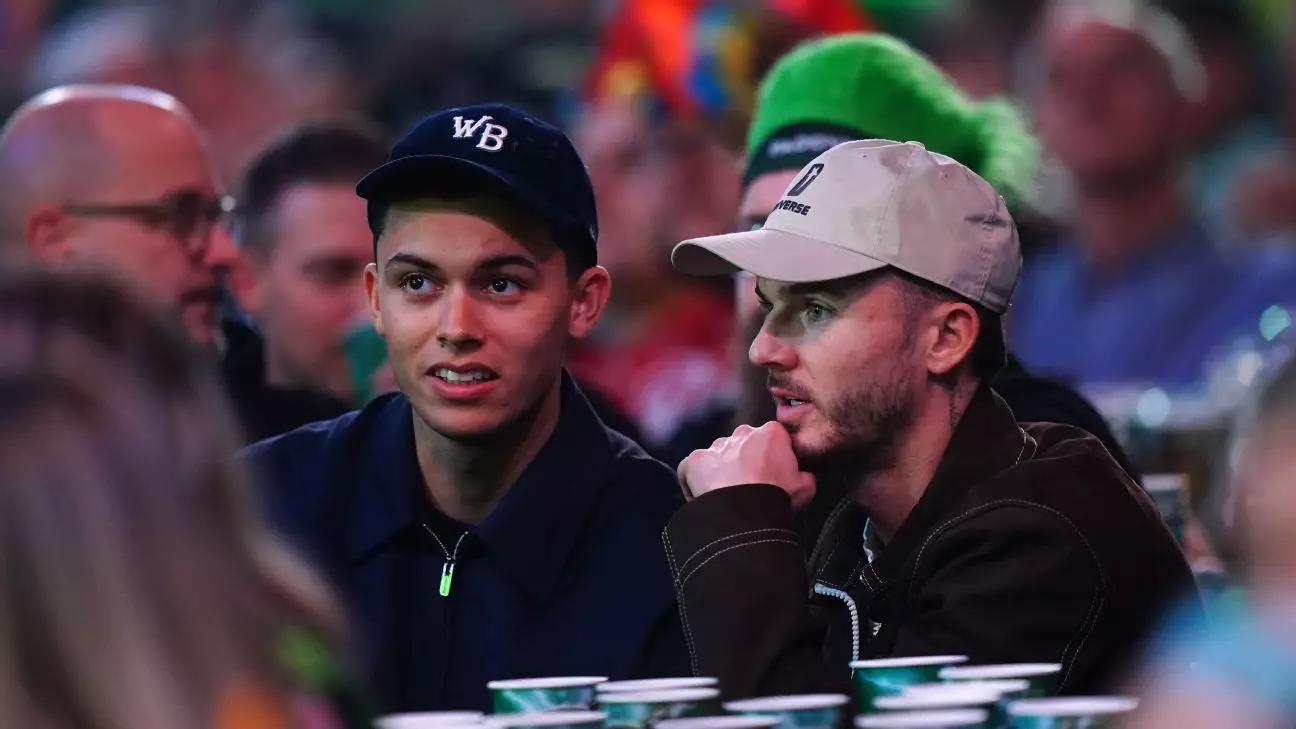Tottenham Hotspur’s under-fire manager, Ange Postecoglou, recently made headlines by addressing the off-field activities of midfielder James Maddison. Following a frustrating 2-2 draw against Wolverhampton Wanderers, where Maddison’s contributions were felt only in the latter stages of the match after he came on as a substitute, Postecoglou voiced his perspective on player management. The incident raised eyebrows, particularly given that Maddison attended the PDC World Darts Championship just hours after being sidelined due to illness. However, Postecoglou defended his player, emphasizing the importance of maintaining a life outside football.
Maddison’s decision to watch a high-profile darts match instead of resting encapsulates a growing recognition within professional sports organizations that athletes are individuals first. Postecoglou’s comments reflect an understanding that players need to nurture their personal interests to avoid burnout and maintain overall well-being. Particularly in high-pressured environments like the Premier League, the balance between personal lives and professional responsibilities can often become blurred. By supporting Maddison’s cultural and recreational pursuits, Postecoglou underlines an evolving narrative in elite sports where player mental health and happiness are prioritized alongside performance.
However, this philosophy doesn’t shield Tottenham from scrutiny. The team’s current league standing illustrates the fallout from an injury-laden season, as they languish in an untenable 11th place. Postecoglou is facing mounting pressure, not just regarding players’ personal lives but also their on-field outputs. Despite his support for Maddison’s emotional investment in activities like darts, the 28-year-old star’s underwhelming performance—having only entered the fray as a substitute against Wolverhampton—merely highlights the team’s desperate need for consistency.
Tottenham’s recent draw, characterized by the resilience of Rodrigo Bentancur and Brennan Johnson’s goals, reflects not just a struggle for results but also an opportunity to reassess team strategy. While Maddison’s absence was felt, the manager’s insistence on the player’s health is a critical consideration. After all, a fit and sharp Maddison has proven to be an invaluable asset, with eight goals in 19 league appearances this season. Yet the challenge lies in balancing his health and performance with the pressing need for decisive contributions on the pitch.
As Tottenham prepares for a crucial encounter against fifth-placed Newcastle United, Postecoglou must weigh the potential risks at play. Can Maddison recover swiftly enough to play a pivotal role in the next match? Will he manage his health while maintaining an active social life? These questions loom large over the club’s short-term strategy.
The situation emphasizes a much broader theme in sports: the dynamic interplay between player welfare and competitive demands. While Postecoglou’s nurturing approach reflects a modern understanding of player management, the imperative is clear: Tottenham must find ways to turn its fortunes around. The question remains, can they do this while respecting the personal lives of their players? Balancing these elements could be key to Tottenham’s path back to competitive prominence in the Premier League.

